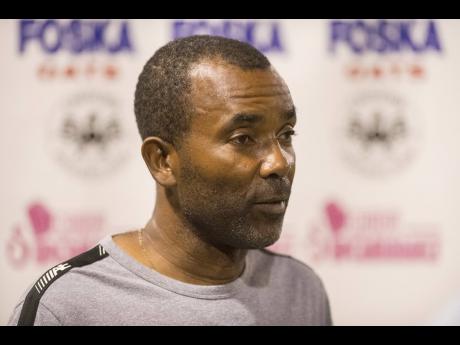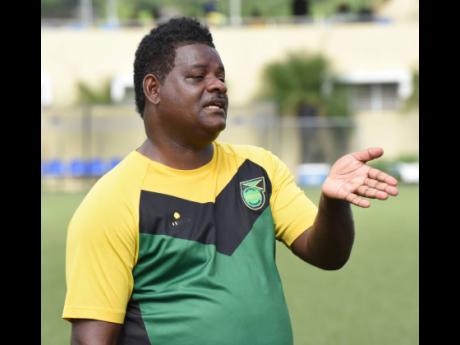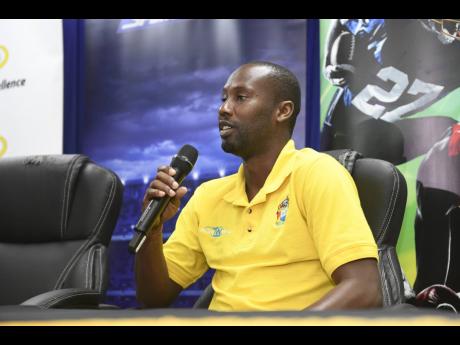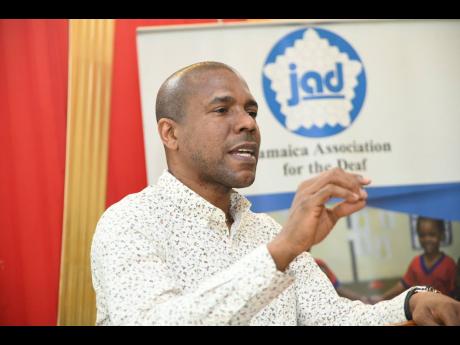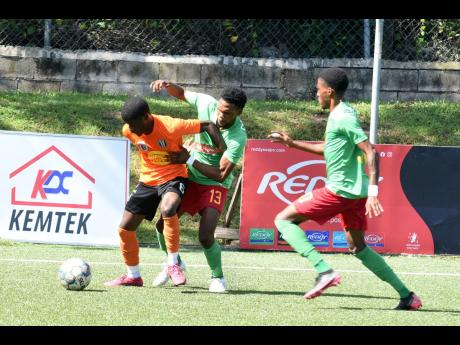JPL a real shot in the arm for football
FOR nearly two years, football players could not kick a ball. Coaches could not earn a salary. And clubs, even now, are unable to generate financial returns on home grounds as a venue. Football, as we know it, got a real kick-about. Within the past...
FOR nearly two years, football players could not kick a ball. Coaches could not earn a salary. And clubs, even now, are unable to generate financial returns on home grounds as a venue. Football, as we know it, got a real kick-about.
Within the past four months, a bit of life has been sparked in the sport through the Jamaica Premier League (JPL), which is rounding up to its decisive stages with today’s semi-finals, in a much abbreviated version of competitions gone by.
Even though it has been shortened, there is much encouragement that play was at all possible, prompting Professional Football Jamaica Limited chairman Christopher Williams chairman, Christopher Williams, to say a “big, big thank you to all the stakeholders”.
That would have included several government ministries, the Jamaica Football Federation (JFF), clubs, coaches, players, referees, along with many other stakeholders.
“I’m extremely proud that we’ve been able to execute the league so far within the confines of a raging pandemic, and we’ve been able to do so with a low positivity rate, excellent television coverage on cable and free to air; and we have been able to give the players an opportunity to showcase themselves,” Williams explained.
DEVELOPMENT
“This is a historic season because so many games have been recorded, every game has been recorded. So the players and coaches have an opportunity to review the games and learn from their play. That is critical for their development, for a player to go back and review a particular play that went by,” he expounded.
Rudolph Speid, technical director, Cavalier Soccer Club, highlighted sport as a business, while expressing a belief that their commercial process should have been reactivated earlier.
“Once you’re in the business of playing football for a living or in the professional ranks, football is no different from any other industry. So if they’ve returned, then it’s a good thing that football has returned, just the same,” noted Speid.
“We’re just a part of the country, a part of business on a whole so it was a natural progression,” Speid added. “I thought it should have returned even sooner.”
For Cavalier, the league is a direct selling point and so a stoppage of play hurts.
“Our club is a development club to sell players, to have players move on to greener pastures. We use a lot of young players, so clearly, if we didn’t play any game this year we would be going for 18 months without any development,” Speid related. “So that would take a toll on our players, our players wouldn’t be able to compete with the rest of the players in the world if we were the only ones not playing and everybody else was playing, which was the case.”
RESOURCES
Of importance is the league also provides a pool of resources for the ongoing Concacaf World Cup qualifiers, even though the vast majority of national players are drawn from overseas-based clubs.
“If you’re going to give any player in Jamaica an opportunity to play in the World Cup qualifiers then you must be playing,” Speid argued. “So if you’re not playing they have no chance. But at least now all the players have a chance to play in the World Cup qualifiers because they’re actually playing games.”
Nicholi Finlayson, captain of Waterhouse, which topped the 11-team JPL preliminaries, also shares that sentiment.
“I know people want to play and make the national team as well. There are World Cup qualifiers going on and we have a lot of youngsters out here showing their talent, so it’s a plus for Jamaica on a whole,” said Finlayson, pointing to the bread-and-butter effect.
“Football is back and it’s a livelihood, an income for people. Everybody wants to play football, everybody wants to be outside enjoying themselves, providing for their families and friends as well,” said Finlayson, a former national player. “It generates an income so we’re just happy that football is back and we really want to keep it going as much as possible.”
His club’s assistant coach, Damion Gordon, and Vere United’s Donovan Duckie attested to that staple.
“I’m very elated. Football has always done wonders, especially for players and how we develop players, so this is very important,” said Gordon.
“A lot of people were out of jobs, it was very chaotic as some people were having a lot of difficulty,” he admitted.
Duckie, who has been in the national coaching set-up, said: “It’s a good feeling (return of football) and I can tell you that I myself never worked for a year and a half after leaving Mount Pleasant, so it’s also invaluable for everyone, staff and especially the players.
“A lot of them are married, have kids and they weren’t able to provide, they were disheartened, they were distressed, and now it’s more motivation for them, so we welcome the return of the league and it’s something that we are very happy with,” added Duckie.
Calling the season “historic”, Williams pointed to the work done by his marketing team as they generated more than $100 million in funding.
“We’ve been able to solicit 19 sponsors. That demonstrates that corporate Jamaica recognises the importance and reach of football,” he said. “We’ve received more than 100 articles in coverage between THE STAR and The Gleaner. That demonstrates the popularity of the league.
“Finally, we’ve been able to pay these players. For four months they’ve received their monthly compensation,” added Williams. “When you look at all of that you have to say, it sums up it was a good season and we look forward to 2021-22 to expand and do more.”
JPL semi-finals previews on B2, B3 and B4

